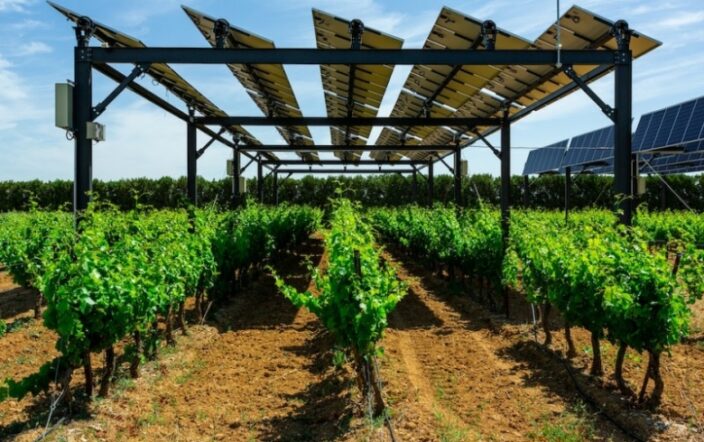The French Environment and Energy Management Agency (Ademe) has defined new standards for agrivoltaics in a new series of publications that have been published on its website. The documents provide a definition of “agrivoltaics,” along with a guide for the classification criteria.
“A simple classification of projects by type of PV system and/or by crop is not possible in the current state of knowledge,” the agency said. “Our work has enabled the creation of a decision tree, which is a real tool for analyzing and identifying the most virtuous projects. A case-by-case analysis of the projects is essential in order to evaluate them and position them in the proposed classification gradient.”
Ademe defines agrivoltaics in the following way: “An agrivoltaic installation is a PV system whose modules are located on the same surface of an agricultural production, to which they bring the following services, without causing a significant qualitative and quantitative degradation of the agricultural yield, as well as a reduction of the revenue generated from the agricultural activity. Service of adaptation to climate changes, service of protection to extreme weather events, service of improving animal welfare, agronomic service for specific cultures.”
Agrivoltaic projects must always imply the presence of a farmer. Such installations must also be reversible and adapted to local conditions, without damage to the environment. Agrivoltaic installations should also be adaptable to new conditions.
“A more precise definition of agrivoltaism has been proposed and it is based on the notion of synergy between agricultural production and PV production on the same plot area,” Ademe said. “The PV installation must provide a service in response to an agricultural problem. For example, an agrivoltaic system can consist of PV modules above plant production to protect it from excessive sunlight, to limit water stress through a shading effect, or to reduce the risks associated with climatic conditions such as hail or frost. Thus, while producing energy, this type of device can, in certain configurations, provide a beneficial service to the agricultural production in place.”
In June 2021, French solar companies Sun'Agri, REM Tec, Kilowattsol, and Altergie Développement et Râcines announced the creation of France Agrivoltaisme, the world's first trade body for the agrivoltaics sector.
This content is protected by copyright and may not be reused. If you want to cooperate with us and would like to reuse some of our content, please contact: editors@pv-magazine.com.




2 comments
By submitting this form you agree to pv magazine using your data for the purposes of publishing your comment.
Your personal data will only be disclosed or otherwise transmitted to third parties for the purposes of spam filtering or if this is necessary for technical maintenance of the website. Any other transfer to third parties will not take place unless this is justified on the basis of applicable data protection regulations or if pv magazine is legally obliged to do so.
You may revoke this consent at any time with effect for the future, in which case your personal data will be deleted immediately. Otherwise, your data will be deleted if pv magazine has processed your request or the purpose of data storage is fulfilled.
Further information on data privacy can be found in our Data Protection Policy.